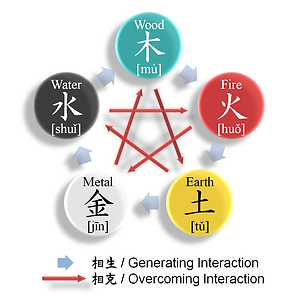
Philosophy

Jeju Island, South Korea

Sanchae-Bibimbap (Wild Vegetables Bibimbap)

Five Phases (Wuxing, Oh-Hang)
I was born in Seoul but moved to Jeju Island, my parents home town, when I was 10. Jeju Island is located at the end of Korea and is the largest island between the Korean Peninsula and Japan. In the spring, my family ate a lot of what we call Bom Namul (spring greens). These greens are rich in vitamins and minerals and were an important part of my family’s diet.
As a philosophy major in college, I began applying philosophical ideas to food. Today, I practice the idea of Yaksun which means that food is medicine. According to Yaksun philosophy, eating natural, whole food can prevent and cure disease and is an important part of a healthy lifestyle.
Food as medicine is intrinsic to Northeast Asian culture and is the foundation of Korean cooking. I firmly believe that the understanding and knowledge of food my culture has acquired through centuries of experience holds the key to improving western diets which have been known to cause a myriad of illnesses.
I consider a person's constitution when choosing ingredients for my recipes. In addition, I apply the oriental philosophy of the Yin Yang and Five Elements (Five Phases) to assure that my ingredients are harmonious. I recommend eating a variety of harmonious foods every day and avoiding processed foods. I also recommend including only natural whole foods in one’s diet.
I am especially excited to introduce my recipe for one of Korea’s most popular dishes, Bibimbab. Bibimbab expresses the Yin Yang philosophy and emphasizes the importance of combining various ingredients that are good for health. The root of the name “Bibim” means ‘ to mix’ which is a theme that specifically applies to fine cooking and generally to modern life in a global community. Historically, bibimbap was as organic and gluten-free as the fields, pastures, and fishing grounds from which it was sourced. Today, whether prepared traditionally or blended with thoughtfully chosen ingredients native to other lands, bibimbab reflects the global movement toward humane and healthy food.
On my website, I will introduce many Korean foods besides bibimbap. All of these foods promote a healthy life style. I will also introduce diabetic diets,and keto-diets. Although I include recipes for traditional Korean foods I have adapted some of my recipes so they appeal to the western palette.
As a trained Korean chef, I will be presenting traditional methods of preparing various dishes along with modern versions of these same dishes. Both the traditional and modern versions will be included so you will understand how the recipe evolved.
My modern version of Korean dishes are not Americanized but retain the elements of healthy Korean cuisine which includes less sugar, healthy fats and no msg. These dishes are presented artistically and are very delicious in that they retain the unique taste of the ingredients. Unlike other Korean websites, I emphasize the belief that food is medicine and sustains our health. My mission as a food educator is to introduce my healthy Korean food cooking methods and recipes to the public.